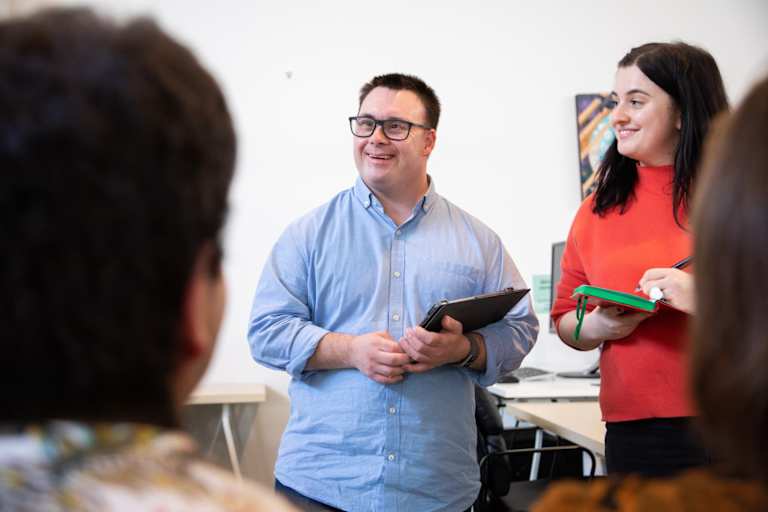How to Become an Licensed Counselor in Virginia
- Licensure Requirements
- How Long Does it Take?
- Out-of-State Licensing
- Licensing Renewal
- Salary Expectations
- Professional Organizations
- FAQ
Are you looking to practice counseling in Virginia? With salaries at or above the national average and professional organizations, you can pursue a rewarding career in Virginia. Learn more about Virginia counseling licensure requirements, whether you are an aspiring school counselor, licensed professional counselor, or marriage and family therapist
Virginia Counselor Licensure Requirements
Virginia counseling licensure requirements vary depending on your degree and desired field of work. You can get credentialed as a licensed professional counselor, marriage and family therapist, or school counselor. The Virginia Board of Counseling oversees licensure for counselors and marriage and family therapists, while the Department of Education handles licensure for school counselors in the state.
Here are the Virginia counseling licensure requirements:
How Long Does It Take to Become a Counselor in Virginia?
The time it takes to become a counselor in Virginia varies depending on the degree and license type you pursue. After completing your bachelor’s degree, you can expect to spend at least four years completing Virginia counseling licensure requirements.
A master’s degree takes two to three years of full-time study to complete, while a doctoral degree takes six to eight years. The required postgraduate supervised experience for all counseling licenses in Virginia takes around two years to obtain.
Out-of-State Licensing Reciprocity in Virginia
Virginia does not have licensing reciprocity with other states for LPCs or MFTs. However, if you hold an active counseling license in another state, you can obtain licensure by endorsement.
You may be eligible for licensing reciprocity in Virginia if you hold a valid out-of-state school counselor license. You can use the Virginia Department of Education’s comparison tool to see if your state is eligible for licensing reciprocity.
How to Renew a Counseling License in Virginia
LPC and LMFT licenses must be renewed annually in Virginia on or before June 30th of each year. At the time of renewal, 20 hours of continuing education (CE) are required, two of which must be a course covering the ethics, standards of practice, or laws governing behavioral science professions in Virginia.
Virginia school counselors renew their pupil personnel services license every 10 years. During each renewal cycle, counselors must obtain 270 professional development points (equal to 270 CE clock hours), including mandatory training in recognizing mental health disorders and behavioral distress.
Salary Expectations for Counselors in Virginia
Average salaries for most counseling professionals in Virginia generally align with national averages, according to the Bureau of Labor Statistics (BLS). However, Virginia MFTs enjoy a higher average salary than the national average: $78,900 vs. $72,270.
Counselors who work in the Washington, D.C. metropolitan area, which includes Arlington and Alexandria, earn some of the highest average salaries nationwide. School counselors, MFTs, and LPCs working in this major hub earn averages of $81,130, $89,080, and $73,210, respectively.
Your specific earning potential as a counselor in Virginia will vary depending on practice location, specialty, and years of experience.
| Occupation | Average Hourly Salary | Average Annual Salary |
|---|---|---|
| Educational, Guidance, and Career Counselors and Advisors | $34.00 | $70,720 |
| Marriage and Family Therapists | $37.93 | $78,900 |
| Rehabilitation Counselors | $23.74 | $49,380 |
| Substance Use, Behavioral Disorder, and Mental Health Counselors | $30.59 | $63,630 |
| Counselors, All Other | $51.23 | $106,560 |
Professional Organizations for Counselors in Virginia
- Virginia Counselors Association: VCA is a nonprofit organization that serves counselors in Virginia working in various settings. It offers networking opportunities across the state and advocacy, professional development, publication, and ethics support through its many committees.
- Virginia Association of Clinical Counselors: VACC is a chapter of the American Mental Health Counselors Association (AMHCA). While the VACC’s primary mission is to advocate for the clinical counseling profession in Virginia, the organization also offers workshops and ethics support to its members.
- Virginia Mental Health Counselors Association: VMHA is another state chapter of the AMHCA, supporting all counselors, counseling students, marriage and family therapists, and substance use counselors through networking, advocacy, and professional development.
- Virginia Association for Marriage and Family Therapy: VAMFT is the state’s professional association for MFTs. Serving over 350 members, VAMFT provides professional development, networking opportunities, mentoring through the licensure process, and legislative advocacy.
- Virginia School Counselor Association: VSCA is a state chapter of the American School Counselor Association and offers school counselors in the state professional development and networking opportunities, including workshops, conferences, and state legislative lobbying for the school counseling profession.
Frequently Asked Questions About Counseling Licensure
You must hold a license to work as a counselor in Virginia. The Virginia Department of Health Professions Board of Counseling oversees licensure for counselors and marriage and family therapists, while the Department of Education handles licensure for school counselors in the state.


